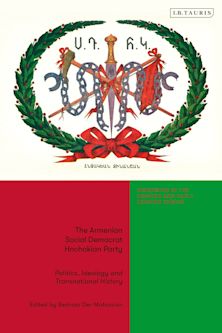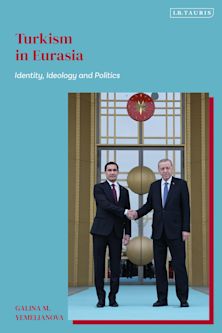Rethinking Greek-Turkish Relations Since 1999
Rethinking Greek-Turkish Relations Since 1999
Description
Greek–Turkish relations, despite some détente periods in their shared history, have been generally characterized by hostility and antagonism. But a significant breakthrough in Greek–Turkish relations was achieved in 1999, although certain signs of rapprochement were already present in the pre-1999 period. This date initiated a new era between the two countries thanks to a series of important events, such as the Helsinki summit, the earthquakes that occurred in 1999 in Turkey and in Greece, and the common initiatives of the Greek and Turkish Ministers of Foreign Affairs. Since then, bilateral relations have changed direction toward the positive.
In order to better understand contemporary Greek–Turkish relations, this book covers a number of different aspects including the current state of minorities, the development of the contemporary Turkish national discourse, the narratives of friendship between the two nations, the influence of electronic media for the reconciliation process, and the role of civil actors for changing the perception of the “other.”
In a period where Greece is struggling to overcome its chronic financial problems and Turkey is being shaped by major political events, the relations between the two countries become highly important, especially in addition to their geographical position near a destabilized geopolitical region. This book is addressed to anyone who is interested in understanding the relations between Greece and Turkey today and in forecasting their future relations—and, by consequence, the future of the eastern Mediterranean area.
Table of Contents
Chapter 1. National Discourses as Frozen Conflicts, Heraklis Millas
Chapter 2. The Lausanne minorities in Greece and Turkey after 1999: Signs of Changes and Fields of Resistance, Konstantinos Tsitselikis
Chapter 3. From excitement to boredom: Politics of Emotions and Turkish–Greek Friendship after 1999, Leonidas Karakatsanis
Chapter 4. The Impact of Tsipras Politics on Turkish–Greek Relations: A Media Analysis between January–August 2015, Isil Zeynep Turkan Ipek
Chapter 5. The Role of Press on the Greek–Turkish Detente Process: The Analysis of Three Turkish Newspapers, Hakan Sezgin Erkan
Chapter 6. The Outlook on Turkish–Greece Economic Relations with a Special Emphasis on Post-1990 Era, Çagri Levent Uslu
Chapter 7. The Role of Greece and Turkey as Energy Hubs in the Region, Natalya Ketenci
Chapter 8. From ‘Imagined’ to ‘Virtual Communities’: Greek–Turkish Encounters in Cyberspace, Haris Theodorelis-Rigas
Chapter 9. Civil Actors of Greek–Turkish Rapprochement, Gökçe Bayindir Goularas
Conclusion
Product details
| Published | 16 Oct 2017 |
|---|---|
| Format | Ebook (Epub & Mobi) |
| Edition | 1st |
| Extent | 144 |
| ISBN | 9781498546973 |
| Imprint | Lexington Books |
| Illustrations | 6 b/w illustrations; 5 tables |
| Publisher | Bloomsbury Publishing |



































